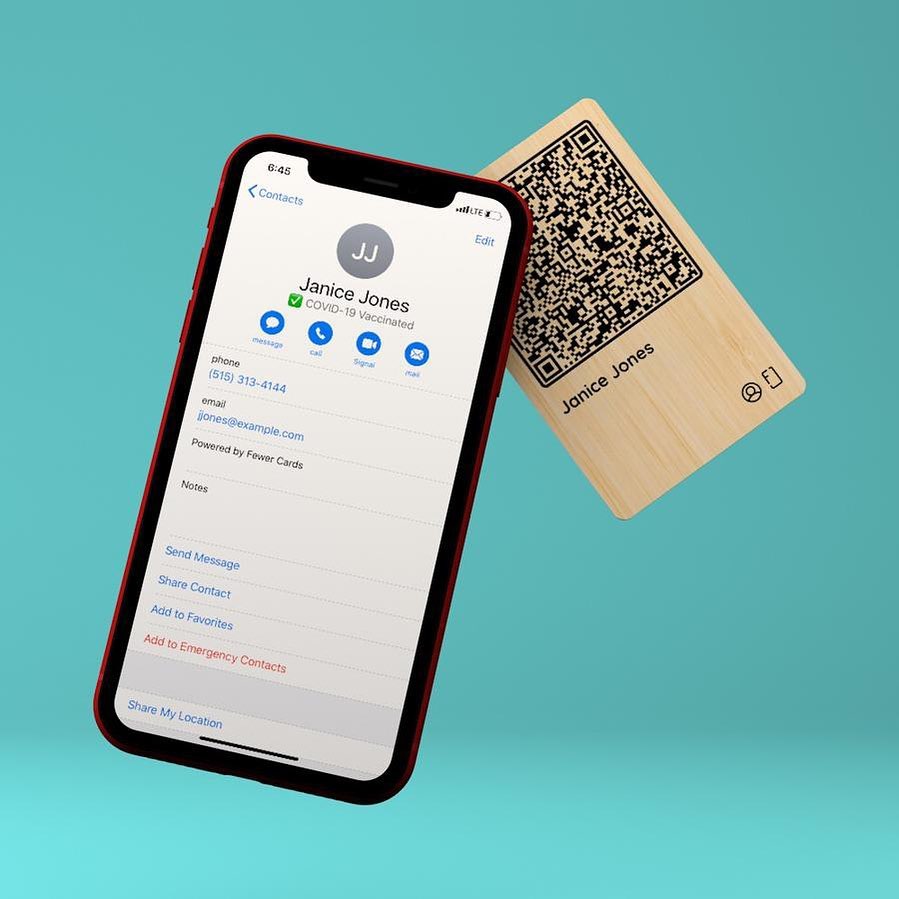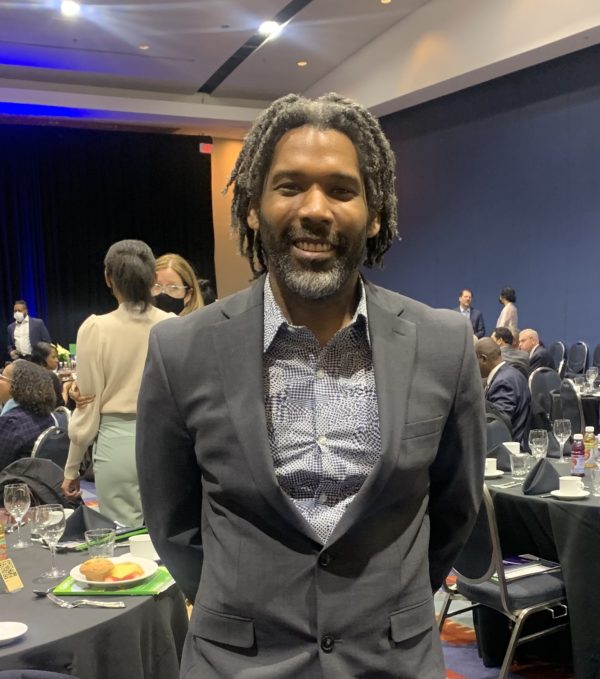Back in the Before Times, business cards were a gold standard of networking for attendees.
But when Calvert County, Maryland-based founder William Carroll would attend an event, he noticed that no one seemed to want them. He’d find cards on the floor, trash or collected in a pile on his desk, never to be looked at again.
“People would have my card and they wouldn’t want to keep it,” Carroll told Technical.ly. “So I thought, well, how can I actually streamline that connection between me and the person I want to connect with? It just made so much more sense to connect in a digital way because that’s where, ultimately, I’m going to live.”
In 2019, the realization led him to create Fewer Cards, a digital business card with an IRL twist. Carroll created a patented business card, made from bamboo to be more eco-friendly, that features a QR code and is outfitted with a chip, which holds contact info. Users can either scan the code or tap their phone against a card to view a card owner’s contact info or be redirected to a webpage such as a portfolio. Currently, Fewer Cards offers five cards with different functions: an SMS card for phone numbers; a personal contact card; a social media card for sharing Instagram, Twitter and other social handles; a hyperlink card to a webpage; and a cryptocurrency card.
The idea, Carroll said, is to marry the ease and necessity of the digital-first nature of our world today with the human connections found in business card exchanges.

Fewer Cards uses near field communication for contact sharing. (Courtesy image)
It works like this. Just like old-school business cards, users send their information to Fewer Cards, which then creates a custom card for each user; companies can also create bulk orders for employees. When the time comes for use, the chip can connect to another smartphone through near field communication, or users can display the QR code to scan — which even works remotely through platforms like Zoom.

Fewer Cards CEO William Carroll (courtesy photo)
While this means that users need a whole new card if they change contact information, Carroll said the asset is that the code still works even in internet dead zones since the data is encoded into the card. It also makes it easy to connect on the go: Carroll said he’s even completed a contact exchange while both parties were riding a bike.
“Traditional business cards is a technology that’s been around since the 1700s,” Carroll said. “It was good for the time, in the 1700s, but we’re in a digital era where everybody has a mobile device. Wherever I go walking around the city, whenever I ride public transportation, I see everybody looking down at their device. That’s where all our information lives.”
In the new year, Carroll hopes to seek outside funding, as Fewer Cards has been completely self-funded until now. He’s also planning to expand the team locally and partner with local events in networking. So far, he said, it’s already caught the eye of some prominent locals, including at least one DC attorney general candidate.
“Traditional business cards, they don’t solve that problem of being able to connect with people through a digital way,” Carroll said. “I think that’s where Fewer Cards shines.”
Join the conversation!
Find news, events, jobs and people who share your interests on Technical.ly's open community Slack

DC daily roundup: Tyto Athene's cross-DMV deal; Spirit owner sells to Accenture; meet 2GI's new cohort

DC daily roundup: $10M to streamline govt. contracting; life sciences might dethrone software; Acadia's new $50M

DC daily roundup: the DMV's VC cooldown, SmartSigns for safer driving; Rep. Schiff's AI copyright bill


